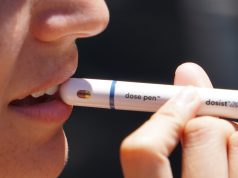The U.S. Supreme Court ruled against race-conscious admissions in higher education institutions nationwide on Thursday. This decision will force universities committed to diversity to reshape their admission programs. However, it will likely have little effect in Florida, which is one of nine states that already bar race from being considered for admission into higher education institutions.
The high court ruling will still allow universities to take into account other factors like essays discussing how race has affected students’ lived experiences in their admissions program, but forbid universities from directly asking students about their race.
“I hope that universities will continue to try and push forward to have more diversity on their campuses,” said Melba Pearson, a South Floridian civil rights lawyer. “Because at the end of the day, having a diverse campus only benefits students.”
She warns that this ban is going to make it more difficult for universities to foster diversity in higher education.
“People understand that affirmative action is something that still needs to exist today because we are still not equal,” Pearson said. “People are not getting every single student who does not have the same opportunity in this country.”
Data shows that in those states where affirmative action consideration is not allowed, Hispanic and Black student enrollment has dropped.
“We’re not going to see the effects of this decision tomorrow, or next month. We are going to see it in the next ten years, the next generation,” she adds.
Pearson argues that this new ban not only will change the higher education environment in the short term, but the country’s power structures in the long run.
While some public universities do not have highly selective admissions programs, universities with low acceptance rates have used race as a deciding factor to promote diversity in their student bodies. These same universities, Pearson argues, are the ones that have the most impact on the future on American businesses and politics.
“We will have more people that have gone to school in pretty much almost homogeneous environments of higher learning and not being as willing to work with people that are different to them,” added Pearson.
































